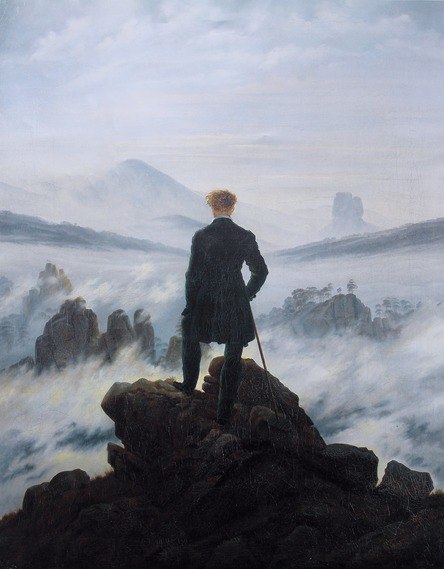-
Atheism and Lack of beliefAnd I want to live in a compassionate society that helps people as long as they can be helped, then lets them go when they decide it's time for them to go. I do not believe in the abstract "value of human life". Life has value to the one [not exclusively humans] living it and the ones who are affected by it. I do believe in the autonomy an dignity of individuals. — Vera Mont
Reminds me of a quote by Montesquieu
"Life was given to me as a favor, so I may abandon it when it is one no longer." -
Does theism ultimately explain anything?It is certainly seen as being where all roads begin, and like God, is not in need of, or lend itself to, further explanation. — Janus
It seems any explanation for a fundamental statement on which everything relies would fail to be complete. If one uses God or the Big Bang or any other hypothesis, it is always possible to ask why that is the case.
"Why does God or the Big Bang exist, why is it fundamental to our ultimate understanding, why does it explain everything?"
It just brings us further down the never-ending rabbit hole. We can continue with our theories, venturing further into the darkness, or admit that we cannot fully understand the universe (because we are part of it?).
As for God being an all-encompassing truth that explains itself, you cannot use the existence of God to prove its existence, causes, or necessity. It just begs the question. -
Can we choose our thoughts? If not, does this rule out free will?
While I am slightly inclined to disagree with your premise, that is a very good point. Suppose it is the case that all our decisions stem from uncontrollable thoughts. Wouldn't those subconscious thoughts be an integral part of our identity? We would essentially be forced to acccept those actions, because that is what the decision-making thought entails. It would lead our blind conscious, which thinks it is in control. And while this may seem like coersion, wouldn't those subconscious thoughts constitute who we truly are? My entire life and self would be centered around the subconscious. If our conscious is not in control, but just pretends to be, I would really be the hidden underlying functions. And since those functions which I essentially am are in control, I myself am in control. To the conscious, which pretends to be the self, it would seem like lack of freedom, but to the true self, the subconscious, of which the conscious is unaware, it is actually freedom. I don't really know what to make of these thoughts, so take from it what you wish.The question is, can I choose the thought which chooses between them? If not, do I have any control over what I choose? — Paul Michael -
Free Speech and TwitterThat’s why it is a double evil because not only is his free speech violated but so is our right to hear it. — NOS4A2
That is an interesting way of thinking about it! And because the speaker and the listener both benefit from free speech, they both have a responsibility to use it wisely: the speaker (to not violate rules of respect and decency) and the listener (to be careful and judicious with the media they consume).
But we’ve tried developing moral behavior with coercion, censorship, ostracism and the results are nothing to be proud of. — NOS4A2
I think censorship and ostracism can be used responsibly when counteracting speech that is downright hateful, violent, or utterly false. However, their use should be limited. While relying on the speaker, listener, and community to police themselves is not a very satisfying approach, that is probably the safest method. We as a society should put more emphasis on the responsibility that comes with free speech. The problem is when some individuals blatantly disregard the "rules", and how society should cope with them. -
Gettier Problem.S's belief that I was not born in Germany is true because I was born in England. — Michael
I think creativesoul is including the justification for belief in the truth statement. The belief qualifies as knowledge if both the justification and the belief were true.
finarfin

Start FollowingSend a Message
- Other sites we like
- Social media
- Terms of Service
- Sign In
- Created with PlushForums
- © 2026 The Philosophy Forum